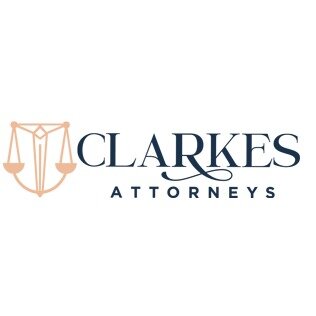Best General Litigation Lawyers in Lilongwe
Share your needs with us, get contacted by law firms.
Free. Takes 2 min.
List of the best lawyers in Lilongwe, Malawi
About Litigation Law in Lilongwe, Malawi
Litigation in Lilongwe, Malawi, involves the legal processes and proceedings through which disputes are resolved in court. This can encompass a wide array of legal issues, including commercial disputes, personal injury claims, property disputes, contract disagreements, and more. The legal framework in Malawi is based on a combination of statutory law, common law, and customary law, and the courts in Lilongwe serve as key venues where legal rights are enforced and adjudicated. The litigation process typically involves several steps, including filing a complaint, pre-trial proceedings, trial, and potentially an appeal. Engaging a competent lawyer is vital to navigating this complex process effectively.
Why You May Need a Lawyer
There are numerous situations where individuals or businesses in Lilongwe may require the services of a lawyer specializing in litigation. These situations can include:
- Disputes over contractual obligations.
- Issues concerning land ownership and property boundaries.
- Employment disputes such as wrongful termination or discrimination claims.
- Personal injury cases where damages are sought for accidents or negligence.
- Business disputes involving partnerships, mergers, or acquisitions.
- Family law matters, including divorce and child custody.
- Any situation where negotiation or mediation has failed, and litigation is deemed necessary.
Having a lawyer can help ensure that your rights are protected, your case is effectively presented, and you are guided through the often complex legal procedures.
Local Laws Overview
Malawi's legal system is a combination of common law, statutory law, and customary law, as influenced by the country's colonial past under British rule. Some key aspects of local laws relevant to litigation in Lilongwe include:
- Constitution of Malawi: It serves as the supreme law safeguarding fundamental rights and freedoms, which are often the basis for litigation.
- Court Structure: The court system in Malawi includes the Magistrate Courts, High Court, and the Supreme Court of Appeal. Each has distinct roles in the litigation process.
- Statutes & Regulations: Various laws govern specific areas like contract law, property law, business law, and family law, which are frequently involved in litigation cases.
- Customary Law: Although customary law is often applied in rural areas, it can also be relevant in disputes involving traditional customs and practices.
Frequently Asked Questions
1. What is the first step in filing a lawsuit in Lilongwe?
The initial step is to seek legal advice to understand the merits of your case. A lawyer will then typically draft and file a formal complaint with the court.
2. How long does the litigation process take in Malawi?
The duration varies based on the complexity of the case, court schedules, and the willingness of parties to settle. Some cases may resolve in months, while others may take several years.
3. Can disputes be settled out of court in Lilongwe?
Yes, parties can choose to settle disputes out of court through negotiation, mediation, or arbitration to avoid lengthy litigation.
4. How are legal fees determined in litigation?
Legal fees may be based on an hourly rate, a flat fee, or a contingency fee basis, depending on the arrangement with the lawyer and the case specifics.
5. What happens if I lose my case?
If you lose, you may have the option to appeal the decision to a higher court. However, you may also be liable for legal costs incurred by the winning party.
6. Is it mandatory to have a lawyer for litigation?
While not mandatory, having a skilled lawyer significantly improves your chances of success and proper case management.
7. Can foreigners litigate in Lilongwe courts?
Yes, foreigners can litigate in Malawi's courts, provided their cases fall within the legal jurisdiction of Malawi.
8. What types of evidence are admissible in court?
Admissible evidence includes documents, witness testimonies, expert opinions, and anything legally obtained that is relevant to the case.
9. Do court decisions have an influence on future cases?
Yes, Malawi follows common law principles, where past court decisions, or precedents, can influence the outcomes of future cases.
10. What should I do if I receive a court summons?
Consult a lawyer immediately to understand the implications and prepare a defense or response as required by law.
Additional Resources
Here are some resources that might be helpful:
- Malawi Law Society: Offers legal resources and assistance to both lawyers and the public.
- Judiciary of Malawi: The official body managing court operations and resources.
- Legal Aid Bureau: Provides legal assistance to those who cannot afford private counsel.
- Ministry of Justice and Constitutional Affairs: Oversees the administration of laws and justice in Malawi.
Next Steps
If you need legal assistance in litigation, consider the following steps:
- Consult with a qualified lawyer experienced in litigation matters.
- Gather and organize all relevant documents and evidence related to your case.
- Understand the key legal elements of your case and potential outcomes.
- Communicate openly with your lawyer and follow their advice on legal strategies.
- Consider alternative dispute resolution methods, such as mediation, if applicable.
Embarking on the litigation process can be daunting, but with the right guidance and preparation, you can navigate the legal system effectively in Lilongwe, Malawi.
Lawzana helps you find the best lawyers and law firms in Lilongwe through a curated and pre-screened list of qualified legal professionals. Our platform offers rankings and detailed profiles of attorneys and law firms, allowing you to compare based on practice areas, including General Litigation, experience, and client feedback.
Each profile includes a description of the firm's areas of practice, client reviews, team members and partners, year of establishment, spoken languages, office locations, contact information, social media presence, and any published articles or resources. Most firms on our platform speak English and are experienced in both local and international legal matters.
Get a quote from top-rated law firms in Lilongwe, Malawi — quickly, securely, and without unnecessary hassle.
Disclaimer:
The information provided on this page is for general informational purposes only and does not constitute legal advice. While we strive to ensure the accuracy and relevance of the content, legal information may change over time, and interpretations of the law can vary. You should always consult with a qualified legal professional for advice specific to your situation.
We disclaim all liability for actions taken or not taken based on the content of this page. If you believe any information is incorrect or outdated, please contact us, and we will review and update it where appropriate.













